 VANCOUVER, BC – Canfor announced today that its 77%-owned subsidiary, Vida AB, has entered into an agreement to purchase AB Karl Hedin Sågverk from Mattsbo Såg AB and certain minority shareholders for a purchase price of $164 million, including working capital of ~$39 million. AB Karl Hedin Sågverk operates three sawmills located in Central Sweden and will add approximately 230 million board feet to Vida’s annual production capacity. Following completion of this acquisition, Vida will have annual production capacity of approximately 2.1 billion board feet. Annual synergies of approximately $15 million are expected to be achieved within three years as a result of this transaction principally related to alignment of marketing programs as well as log procurement and operational practices. …These operations have access to exceptionally high-quality timber and are well positioned to complement Vida’s high-value product offering,” said CEO Susan Yurkovich. …The transaction is expected to close over the next several months.
VANCOUVER, BC – Canfor announced today that its 77%-owned subsidiary, Vida AB, has entered into an agreement to purchase AB Karl Hedin Sågverk from Mattsbo Såg AB and certain minority shareholders for a purchase price of $164 million, including working capital of ~$39 million. AB Karl Hedin Sågverk operates three sawmills located in Central Sweden and will add approximately 230 million board feet to Vida’s annual production capacity. Following completion of this acquisition, Vida will have annual production capacity of approximately 2.1 billion board feet. Annual synergies of approximately $15 million are expected to be achieved within three years as a result of this transaction principally related to alignment of marketing programs as well as log procurement and operational practices. …These operations have access to exceptionally high-quality timber and are well positioned to complement Vida’s high-value product offering,” said CEO Susan Yurkovich. …The transaction is expected to close over the next several months.

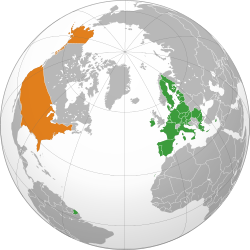

 Is Brazil playing fair when it comes to trade? An investigation launched July 15 by the Office of the United States Trade Representative (USTR) aims to find the answer. The Section 301 investigation will seek to determine whether acts, policies, and practices of the Government of Brazil related to a host of trade issues — including ethanol market access and forestry practices — are “unreasonable or discriminatory and burden or restrict U.S. commerce.” “Brazil has walked away from its willingness to provide virtually duty-free treatment for U.S. ethanol and instead now applies a substantially higher tariff on U.S. ethanol exports,” the USTR office wrote in announcing the investigation. The announcement also said Brazil appears to be failing to effectively enforce laws and regulations designed to stop illegal deforestation — which undermines the competitiveness of U.S. producers of timber and ag products.
Is Brazil playing fair when it comes to trade? An investigation launched July 15 by the Office of the United States Trade Representative (USTR) aims to find the answer. The Section 301 investigation will seek to determine whether acts, policies, and practices of the Government of Brazil related to a host of trade issues — including ethanol market access and forestry practices — are “unreasonable or discriminatory and burden or restrict U.S. commerce.” “Brazil has walked away from its willingness to provide virtually duty-free treatment for U.S. ethanol and instead now applies a substantially higher tariff on U.S. ethanol exports,” the USTR office wrote in announcing the investigation. The announcement also said Brazil appears to be failing to effectively enforce laws and regulations designed to stop illegal deforestation — which undermines the competitiveness of U.S. producers of timber and ag products.

 Amid global economic uncertainties and tightening trade policies, Việt Nam’s wood industry is navigating through significant headwinds. While long considered a strong export sector, local enterprises are now re-evaluating their strategies to not only sustain growth but also reposition Vietnamese wood products on the global trade map. According to Nguyễn Liêm, chairman of the Bình Dương Furniture Association, major shifts in trade policies among importing countries have been felt since early this year. …The US remains the largest market, accounting for nearly 50% of the industry’s export value. …Recently, the US Department of Commerce (DOC) initiated anti-dumping and countervailing investigations into plywood imported from Việt Nam. …Besides the US, the European Union has also implemented new technical and legal requirements. Regulations such as the EU Deforestation Regulation (EUDR), the Carbon Border Adjustment Mechanism (CBAM), and the Corporate Sustainability Reporting Directive (CSRD) are demanding more rigorous environmental and traceability standards.
Amid global economic uncertainties and tightening trade policies, Việt Nam’s wood industry is navigating through significant headwinds. While long considered a strong export sector, local enterprises are now re-evaluating their strategies to not only sustain growth but also reposition Vietnamese wood products on the global trade map. According to Nguyễn Liêm, chairman of the Bình Dương Furniture Association, major shifts in trade policies among importing countries have been felt since early this year. …The US remains the largest market, accounting for nearly 50% of the industry’s export value. …Recently, the US Department of Commerce (DOC) initiated anti-dumping and countervailing investigations into plywood imported from Việt Nam. …Besides the US, the European Union has also implemented new technical and legal requirements. Regulations such as the EU Deforestation Regulation (EUDR), the Carbon Border Adjustment Mechanism (CBAM), and the Corporate Sustainability Reporting Directive (CSRD) are demanding more rigorous environmental and traceability standards.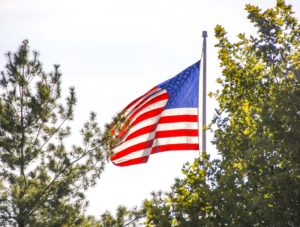 US and Chinese negotiators have agreed in principle to push back the deadline for escalating tariffs, although America’s representatives said any extension would need Donald Trump’s approval. Officials from both sides said after two days of talks in Stockholm that while had failed to find a resolution across the many areas of dispute they had agreed to extend a pause due to run out on 12 August. Beijing’s top trade negotiator, Li Chenggang, said the extension of a truce struck in mid-May would allow for further talks, without specifying when and for how long the latest pause would run. However, the US trade representative Jamieson Greer stressed that President Trump would have the “final call” on any extension. …Trump is on course to impose extra tariffs on Mexico and Canada from Friday, barring last-minute deals.
US and Chinese negotiators have agreed in principle to push back the deadline for escalating tariffs, although America’s representatives said any extension would need Donald Trump’s approval. Officials from both sides said after two days of talks in Stockholm that while had failed to find a resolution across the many areas of dispute they had agreed to extend a pause due to run out on 12 August. Beijing’s top trade negotiator, Li Chenggang, said the extension of a truce struck in mid-May would allow for further talks, without specifying when and for how long the latest pause would run. However, the US trade representative Jamieson Greer stressed that President Trump would have the “final call” on any extension. …Trump is on course to impose extra tariffs on Mexico and Canada from Friday, barring last-minute deals..png)

 Japan’s housing starts fell 15.6% year-on-year in June 2025, slightly better than market expectations of a 15.8% drop and easing from May’s sharp 34.4% plunge—the steepest since September 2009. This marked the third consecutive monthly decline but the mildest in the sequence, as contractions slowed across key categories: owned (-16.4% vs -30.9%), rented (-14.0% vs -30.5%), built-for-sale (-17.9% vs -43.8%), and two-by-four homes (-5.7% vs -26.4%). On the other hand, prefabricated housing starts declined slightly more (-9.6% vs -9.3%), while growth in issued units moderated sharply to 10.2% from 76.7% in May.
Japan’s housing starts fell 15.6% year-on-year in June 2025, slightly better than market expectations of a 15.8% drop and easing from May’s sharp 34.4% plunge—the steepest since September 2009. This marked the third consecutive monthly decline but the mildest in the sequence, as contractions slowed across key categories: owned (-16.4% vs -30.9%), rented (-14.0% vs -30.5%), built-for-sale (-17.9% vs -43.8%), and two-by-four homes (-5.7% vs -26.4%). On the other hand, prefabricated housing starts declined slightly more (-9.6% vs -9.3%), while growth in issued units moderated sharply to 10.2% from 76.7% in May.
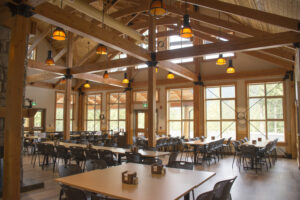 Decarbonizing the economy requires a large-scale transition from fossil carbon-containing feedstocks to minerals and biomass, notably wood in buildings. Increasing harvesting is under discussion to meet the supply of wood for ‘timber cities’, with potentially negative impacts on forests and biodiversity. Here we investigate pathways to timber cities, including their impacts on land use, energy use and greenhouse gas emissions by quantifying global and regional wood cycles using Bayesian material flow analysis. We show that shifting wood fuel to industrial use and maximizing circular use of wood can make timber cities possible with the current harvest volume. Our results reveal that these pathways have better environmental performance than increased harvesting, reducing total CO2 equivalent emissions by 2100 by 40.8 Gt compared to business as usual. To achieve the wood transition, regional and cross-sectoral governance and planning are needed, addressing national-level pathways and inter-regional wood transport.
Decarbonizing the economy requires a large-scale transition from fossil carbon-containing feedstocks to minerals and biomass, notably wood in buildings. Increasing harvesting is under discussion to meet the supply of wood for ‘timber cities’, with potentially negative impacts on forests and biodiversity. Here we investigate pathways to timber cities, including their impacts on land use, energy use and greenhouse gas emissions by quantifying global and regional wood cycles using Bayesian material flow analysis. We show that shifting wood fuel to industrial use and maximizing circular use of wood can make timber cities possible with the current harvest volume. Our results reveal that these pathways have better environmental performance than increased harvesting, reducing total CO2 equivalent emissions by 2100 by 40.8 Gt compared to business as usual. To achieve the wood transition, regional and cross-sectoral governance and planning are needed, addressing national-level pathways and inter-regional wood transport. 

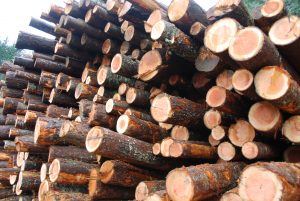 Proposed changes to the EU deforestation law supported by a majority of member states will boost the potential for illegal trade of Russian and Belarusian timber, according to an NGO. In May 18 EU member states sent a letter to the European Commission proposing to simplify the EU Deforestation Regulation, the bloc’s legislation that aims to reduce the EU’s impact on global deforestation. …The European Commission decided to postpone its implementation to 30 December 2025. …The regulation boosts controls over illegal imports of timber by introducing more mandatory border checks and compulsory geolocation of timber. …“For so-called ‘no-risk’ countries, they would be exempt from geolocation requirements, and there would also be no obligation for authorities to carry out a minimum number of checks on those countries,” Ganesh said. …“NGOs have shown that wood, not just from Russia, but also from other high-risk tropical countries and deforestation hotspots, is regularly laundered through countries like China.
Proposed changes to the EU deforestation law supported by a majority of member states will boost the potential for illegal trade of Russian and Belarusian timber, according to an NGO. In May 18 EU member states sent a letter to the European Commission proposing to simplify the EU Deforestation Regulation, the bloc’s legislation that aims to reduce the EU’s impact on global deforestation. …The European Commission decided to postpone its implementation to 30 December 2025. …The regulation boosts controls over illegal imports of timber by introducing more mandatory border checks and compulsory geolocation of timber. …“For so-called ‘no-risk’ countries, they would be exempt from geolocation requirements, and there would also be no obligation for authorities to carry out a minimum number of checks on those countries,” Ganesh said. …“NGOs have shown that wood, not just from Russia, but also from other high-risk tropical countries and deforestation hotspots, is regularly laundered through countries like China.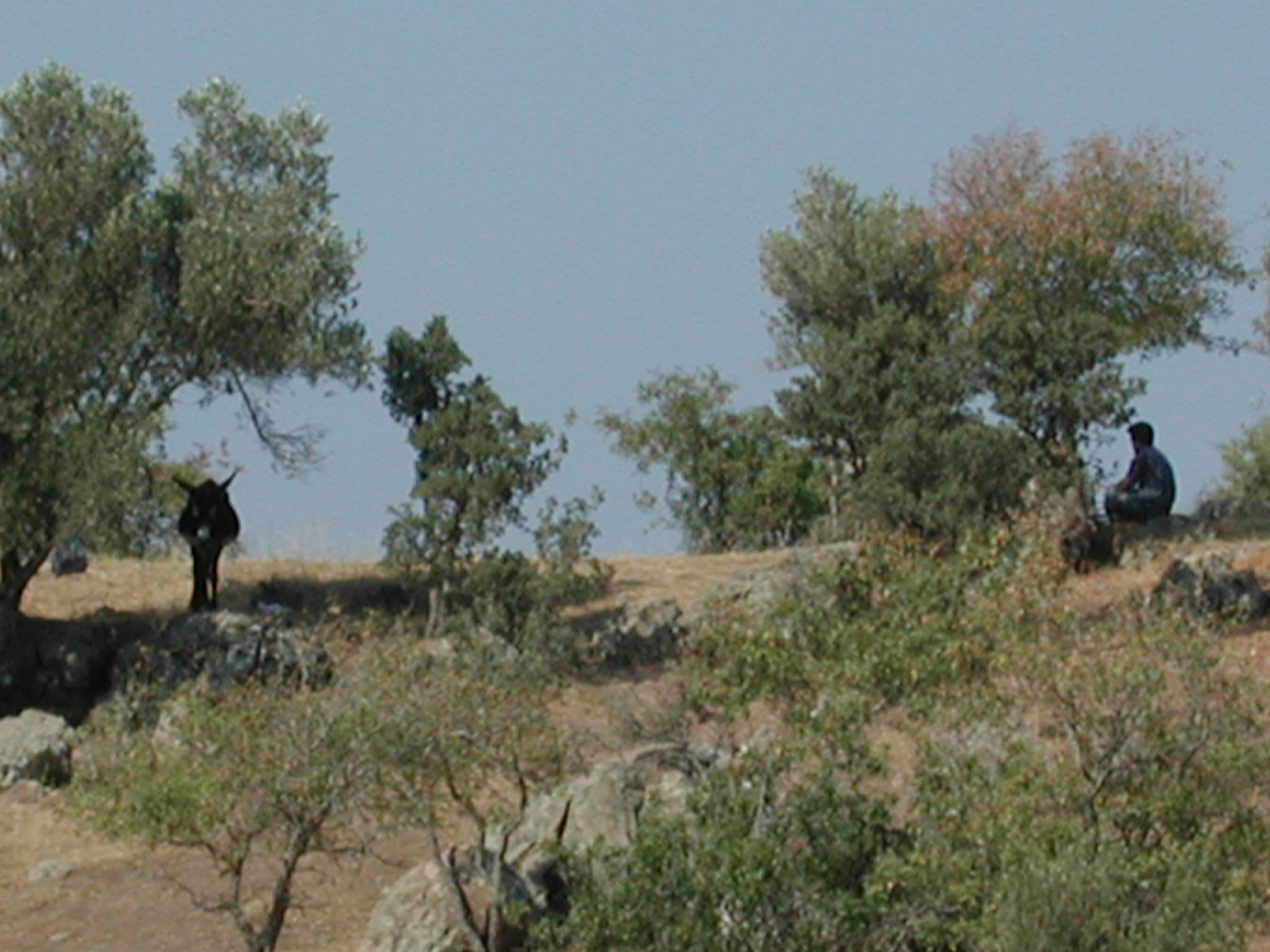 KALAVRYTA, Greece – Around the village of Kalavryta in southwestern Greece, hundreds of dying fir trees stand out among the dark green foliage, a stark reminder of how drought slowly drains the life from nature. Greek fir species Abies cephalonica are known to need cooler, moist climates. But prolonged droughts in recent years linked to a fast-changing climate in Greece are leaving them exposed to pest infestations, scientists and locals said. …Less water and moisture mean that fir trees become more vulnerable to attacks by pests that bore into their bark to lay eggs and create tunnels, disrupting the trees’ ability to transport nutrients between roots and branches and leading to their death. …In Kalavryta, authorities plan to remove dead and infested trees to limit the damage. But this might not be enough to save the forests. “We cannot stop climate change,” director of research at the National Observatory of Athens, Dr Kostas Lagouvardos said.
KALAVRYTA, Greece – Around the village of Kalavryta in southwestern Greece, hundreds of dying fir trees stand out among the dark green foliage, a stark reminder of how drought slowly drains the life from nature. Greek fir species Abies cephalonica are known to need cooler, moist climates. But prolonged droughts in recent years linked to a fast-changing climate in Greece are leaving them exposed to pest infestations, scientists and locals said. …Less water and moisture mean that fir trees become more vulnerable to attacks by pests that bore into their bark to lay eggs and create tunnels, disrupting the trees’ ability to transport nutrients between roots and branches and leading to their death. …In Kalavryta, authorities plan to remove dead and infested trees to limit the damage. But this might not be enough to save the forests. “We cannot stop climate change,” director of research at the National Observatory of Athens, Dr Kostas Lagouvardos said.
 A deadly wildfire in Seyitgazi, Türkiye that killed 10 forestry workers was the result of a lack of training and institutional expertise, a senior union leader has claimed. The accusation was made by Yusuf Kurt, president of the Agriculture and Forestry Workers Union, who said unqualified personnel were deployed to the scene, while experienced staff had been reassigned due to internal rotation policies. Kurt criticized the practice of assigning staff who had never responded to wildfires before, simply as part of internal rotation policies. “Fire has no school, but the institution used to train its own staff through in-house training centers,” he said. “Now those centers are being shut down. Sending untrained personnel into active fires leads to fatal consequences.” Emphasizing the complexity of fire management, Kurt warned that theoretical knowledge is not enough. “Fire has a language. If you cannot read it, you cannot control it,” he said.
A deadly wildfire in Seyitgazi, Türkiye that killed 10 forestry workers was the result of a lack of training and institutional expertise, a senior union leader has claimed. The accusation was made by Yusuf Kurt, president of the Agriculture and Forestry Workers Union, who said unqualified personnel were deployed to the scene, while experienced staff had been reassigned due to internal rotation policies. Kurt criticized the practice of assigning staff who had never responded to wildfires before, simply as part of internal rotation policies. “Fire has no school, but the institution used to train its own staff through in-house training centers,” he said. “Now those centers are being shut down. Sending untrained personnel into active fires leads to fatal consequences.” Emphasizing the complexity of fire management, Kurt warned that theoretical knowledge is not enough. “Fire has a language. If you cannot read it, you cannot control it,” he said.  Costa Rica is advancing with the creation of a National Forest Traceability System, a key tool to guarantee the legality and sustainability of timber use. Public and private sectors came together for the first time to plan this initiative. This process is led by the Ministry of Environment and Energy through the Vice Ministries of Environment and Strategic Management of Costa Rica, with technical support from the FAO. It is part of a national strategy to strengthen forest legality, reduce the risk of illegal timber trade, and enhance the competitiveness of the Costa Rican forestry sector in demanding markets such as Europe (EUDR) and the United States (Lacey Act). “Costa Rica has made significant progress in forest legality, but the next step is to integrate technology and innovation into the process to ensure traceability from the farm to the primary wood product,” commented Franz Tattenbach, Minister of Environment and Energy.
Costa Rica is advancing with the creation of a National Forest Traceability System, a key tool to guarantee the legality and sustainability of timber use. Public and private sectors came together for the first time to plan this initiative. This process is led by the Ministry of Environment and Energy through the Vice Ministries of Environment and Strategic Management of Costa Rica, with technical support from the FAO. It is part of a national strategy to strengthen forest legality, reduce the risk of illegal timber trade, and enhance the competitiveness of the Costa Rican forestry sector in demanding markets such as Europe (EUDR) and the United States (Lacey Act). “Costa Rica has made significant progress in forest legality, but the next step is to integrate technology and innovation into the process to ensure traceability from the farm to the primary wood product,” commented Franz Tattenbach, Minister of Environment and Energy. In 2023 and 2024 the world’s forests absorbed only a quarter of the carbon dioxide they did in the beginning of the 21st century, according to data from the World Resources Institute’s Global Forest Watch. Those back-to-back years of record-breaking wildfires hampered forests’ ability absorb billions of tons of carbon dioxide, curbing some of the global warming caused by fossil fuel emissions. Those two years also marked the first time wildfires surpassed logging or agriculture-driven deforestation as the biggest factor lowering forests’ carbon-capturing ability. It’s an emerging pattern that’s different from the last big drop, in 2016 and 2017, which was largely the result of increased deforestation for agriculture. …Other recently published studies suggest that climate change is making extreme-forest-fire years more common, and the worst events more frequent and intense. …“We’re reaching the point where global warming is feeding the warming,” said Werner Kurz, an emeritus scientist for the Canadian Forest Service. [A subscription to the New York Times is required to access the full story]
In 2023 and 2024 the world’s forests absorbed only a quarter of the carbon dioxide they did in the beginning of the 21st century, according to data from the World Resources Institute’s Global Forest Watch. Those back-to-back years of record-breaking wildfires hampered forests’ ability absorb billions of tons of carbon dioxide, curbing some of the global warming caused by fossil fuel emissions. Those two years also marked the first time wildfires surpassed logging or agriculture-driven deforestation as the biggest factor lowering forests’ carbon-capturing ability. It’s an emerging pattern that’s different from the last big drop, in 2016 and 2017, which was largely the result of increased deforestation for agriculture. …Other recently published studies suggest that climate change is making extreme-forest-fire years more common, and the worst events more frequent and intense. …“We’re reaching the point where global warming is feeding the warming,” said Werner Kurz, an emeritus scientist for the Canadian Forest Service. [A subscription to the New York Times is required to access the full story]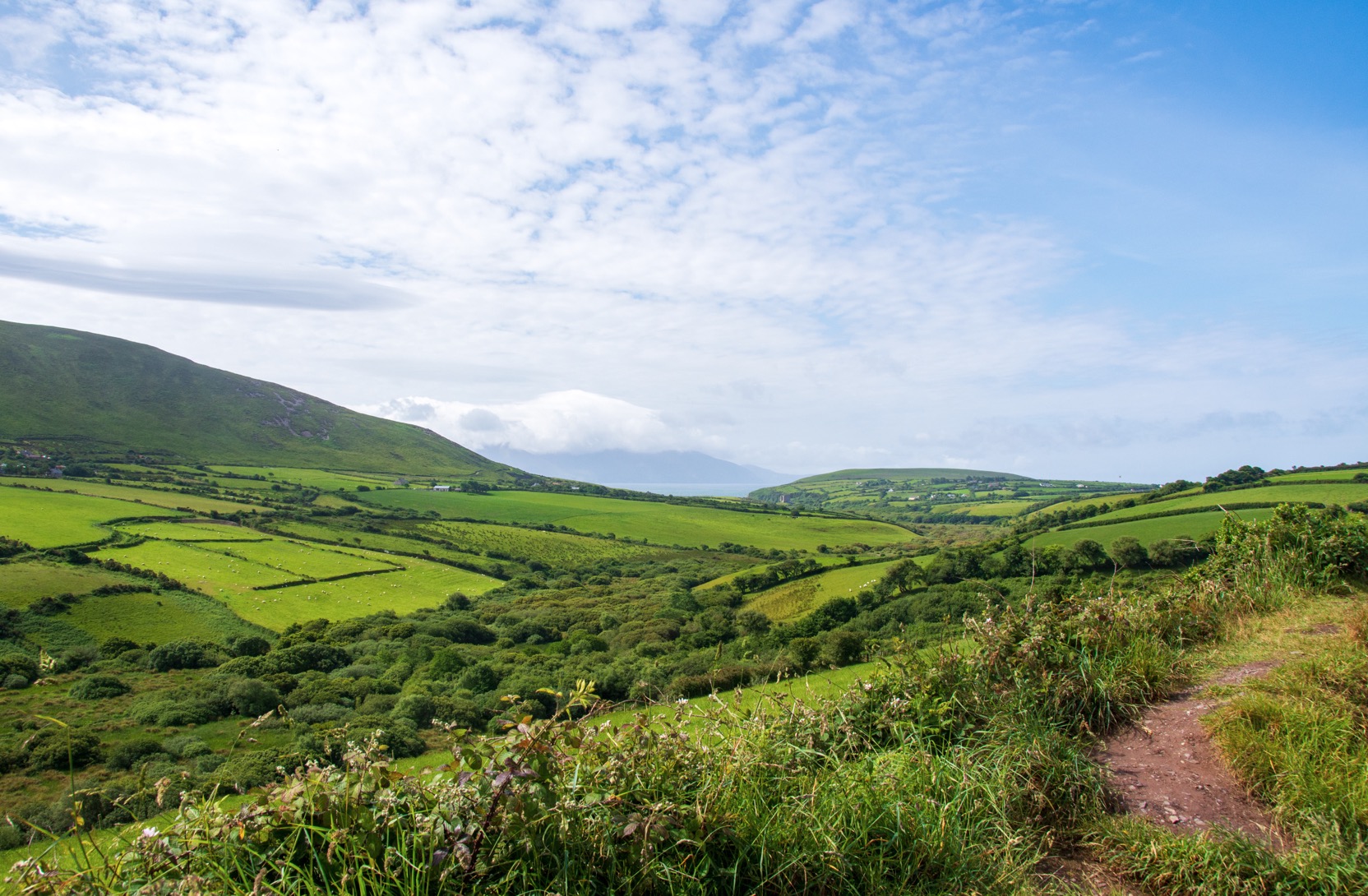 Alastair Collier is right to point out that to build forests that can withstand future conditions, we must invest in resilience from the outset (Britain’s forests need help to adapt to the changing climate
Alastair Collier is right to point out that to build forests that can withstand future conditions, we must invest in resilience from the outset (Britain’s forests need help to adapt to the changing climate 
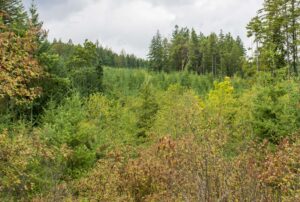 At the southern tip of Europe’s largest river island, the ground falls away into a vast and unexpected vista. From a high, rocky ledge on Khortytsia Island, the view opens on to a sea of swaying young willows and mirrored lagoons. Some of the trees are already many metres tall, but this is a young forest. Just a few years ago, all of it was under water. “This is Velykyi Luh – the Great Meadow,” says Valeriy Babko, a retired history teacher and army veteran, standing on the former reservoir shoreline at Malokaterynivka village. For him, this extraordinary new-old environment represents more than nature alone. “It is an ancient, mythic terrain, woven through Ukrainian folklore,” he says. “Think of all those Cossacks galloping through its valleys of forests so dense the sun barely pierced them.”
At the southern tip of Europe’s largest river island, the ground falls away into a vast and unexpected vista. From a high, rocky ledge on Khortytsia Island, the view opens on to a sea of swaying young willows and mirrored lagoons. Some of the trees are already many metres tall, but this is a young forest. Just a few years ago, all of it was under water. “This is Velykyi Luh – the Great Meadow,” says Valeriy Babko, a retired history teacher and army veteran, standing on the former reservoir shoreline at Malokaterynivka village. For him, this extraordinary new-old environment represents more than nature alone. “It is an ancient, mythic terrain, woven through Ukrainian folklore,” he says. “Think of all those Cossacks galloping through its valleys of forests so dense the sun barely pierced them.” The General Directorate of Forestry (OGM) under Türkiye’s Ministry of Agriculture and Forestry has issued a stark warning, urging extreme caution as temperatures are forecast to rise by 6 to 12 degrees Celsius between July 19 and 25. As record-breaking summer heat and dry winds sweep across the Mediterranean basin, Türkiye is once again on the front lines of a growing global crisis: forest fires. Citing meteorological data, the OGM emphasized that a combination of soaring heat, low humidity and wind can create a dangerous trifecta, fueling wildfires that spread rapidly and with devastating intensity. “Even a moment of carelessness can ignite a fire of catastrophic scale,” the statement read. Citizens are urged not to burn brush, discard cigarette butts, light open fires or leave glass bottles in nature during this critical period. With 86% of wildfires caused by human activity, the risk is real and preventable.
The General Directorate of Forestry (OGM) under Türkiye’s Ministry of Agriculture and Forestry has issued a stark warning, urging extreme caution as temperatures are forecast to rise by 6 to 12 degrees Celsius between July 19 and 25. As record-breaking summer heat and dry winds sweep across the Mediterranean basin, Türkiye is once again on the front lines of a growing global crisis: forest fires. Citing meteorological data, the OGM emphasized that a combination of soaring heat, low humidity and wind can create a dangerous trifecta, fueling wildfires that spread rapidly and with devastating intensity. “Even a moment of carelessness can ignite a fire of catastrophic scale,” the statement read. Citizens are urged not to burn brush, discard cigarette butts, light open fires or leave glass bottles in nature during this critical period. With 86% of wildfires caused by human activity, the risk is real and preventable.

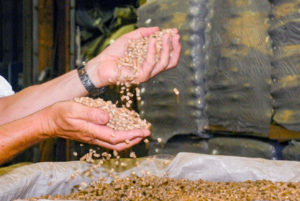 …In the aftermath of the earthquake and tsunami, Japan shut down not just Fukushima but all of its nuclear plants, a move that resulted in the loss of a third of its electrical power. …Japan faced a daunting energy crisis that it addressed… with conventional fuels such as natural gas and “bioproducts” including wood pellets derived from the logging of BC’s Interior forests. …Last year, roughly two million tonnes of those pellets arrived Japanese ports from BC, linked to a dozen mills in the province that make wood pellets derived from trees logged in the province’s rapidly dwindling primary forests — natural forests never previously subject to industrial logging. …Which means that in the name of creating allegedly clean energy, forests are being razed just to burn the wood. …The strain on the province’s stressed forests is [also] coming from other bioenergy producers, including those who want to use wood to make jet fuel.
…In the aftermath of the earthquake and tsunami, Japan shut down not just Fukushima but all of its nuclear plants, a move that resulted in the loss of a third of its electrical power. …Japan faced a daunting energy crisis that it addressed… with conventional fuels such as natural gas and “bioproducts” including wood pellets derived from the logging of BC’s Interior forests. …Last year, roughly two million tonnes of those pellets arrived Japanese ports from BC, linked to a dozen mills in the province that make wood pellets derived from trees logged in the province’s rapidly dwindling primary forests — natural forests never previously subject to industrial logging. …Which means that in the name of creating allegedly clean energy, forests are being razed just to burn the wood. …The strain on the province’s stressed forests is [also] coming from other bioenergy producers, including those who want to use wood to make jet fuel. A lot of attention has been paid to how climate change can drive biodiversity loss. Now, MIT researchers have shown the reverse is also true: Reductions in biodiversity can jeopardize one of Earth’s most powerful levers for mitigating climate change. In
A lot of attention has been paid to how climate change can drive biodiversity loss. Now, MIT researchers have shown the reverse is also true: Reductions in biodiversity can jeopardize one of Earth’s most powerful levers for mitigating climate change. In  The top United Nations court has ruled that nations are obligated under international law to limit climate change, and countries that don’t act could be held legally responsible for climate damages elsewhere. The decision is a win for many small countries vulnerable to climate impacts, which pushed for the issue to be heard by the International Court of Justice (ICJ). It’s the court’s first major ruling on climate change, but the decision is only advisory, meaning that countries are not legally bound by it. Still, legal experts say it could be a boost for other climate change lawsuits pending in national courts around the world. “It’s really groundbreaking,” says Maria Antonia Tigre, director of Global Climate Change Litigation at Columbia Law School. “I think it will create this new wave of climate litigation.”
The top United Nations court has ruled that nations are obligated under international law to limit climate change, and countries that don’t act could be held legally responsible for climate damages elsewhere. The decision is a win for many small countries vulnerable to climate impacts, which pushed for the issue to be heard by the International Court of Justice (ICJ). It’s the court’s first major ruling on climate change, but the decision is only advisory, meaning that countries are not legally bound by it. Still, legal experts say it could be a boost for other climate change lawsuits pending in national courts around the world. “It’s really groundbreaking,” says Maria Antonia Tigre, director of Global Climate Change Litigation at Columbia Law School. “I think it will create this new wave of climate litigation.”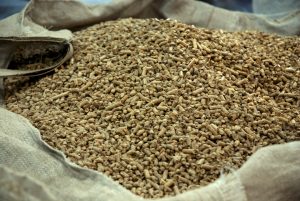 Drax power station is once again the UK’s largest single source of carbon emissions, according to new analysis from think tank Ember. Emissions from the biomass-burning power plant rose to 13.3 million tonnes of CO2 in 2024, a 16% increase from the previous year. Drax biomass power plant has been the UK’s top emitter for the last 10 years running. Drax now emits more than the next four largest polluters combined and more than the six most emitting gas power plants combined. Emissions from the Drax power plant are equivalent to over 10% of the UK’s total transport emissions and nearly 3% of the country’s territorial total. Despite its emissions increase, Drax received around £2 million per day in subsidies in 2024, an average of £10 per household. The power station burned 7.6 million tonnes of wood, 99% of which was imported. Recent investigations have found instances of old growth forests being cut down for this purpose.
Drax power station is once again the UK’s largest single source of carbon emissions, according to new analysis from think tank Ember. Emissions from the biomass-burning power plant rose to 13.3 million tonnes of CO2 in 2024, a 16% increase from the previous year. Drax biomass power plant has been the UK’s top emitter for the last 10 years running. Drax now emits more than the next four largest polluters combined and more than the six most emitting gas power plants combined. Emissions from the Drax power plant are equivalent to over 10% of the UK’s total transport emissions and nearly 3% of the country’s territorial total. Despite its emissions increase, Drax received around £2 million per day in subsidies in 2024, an average of £10 per household. The power station burned 7.6 million tonnes of wood, 99% of which was imported. Recent investigations have found instances of old growth forests being cut down for this purpose.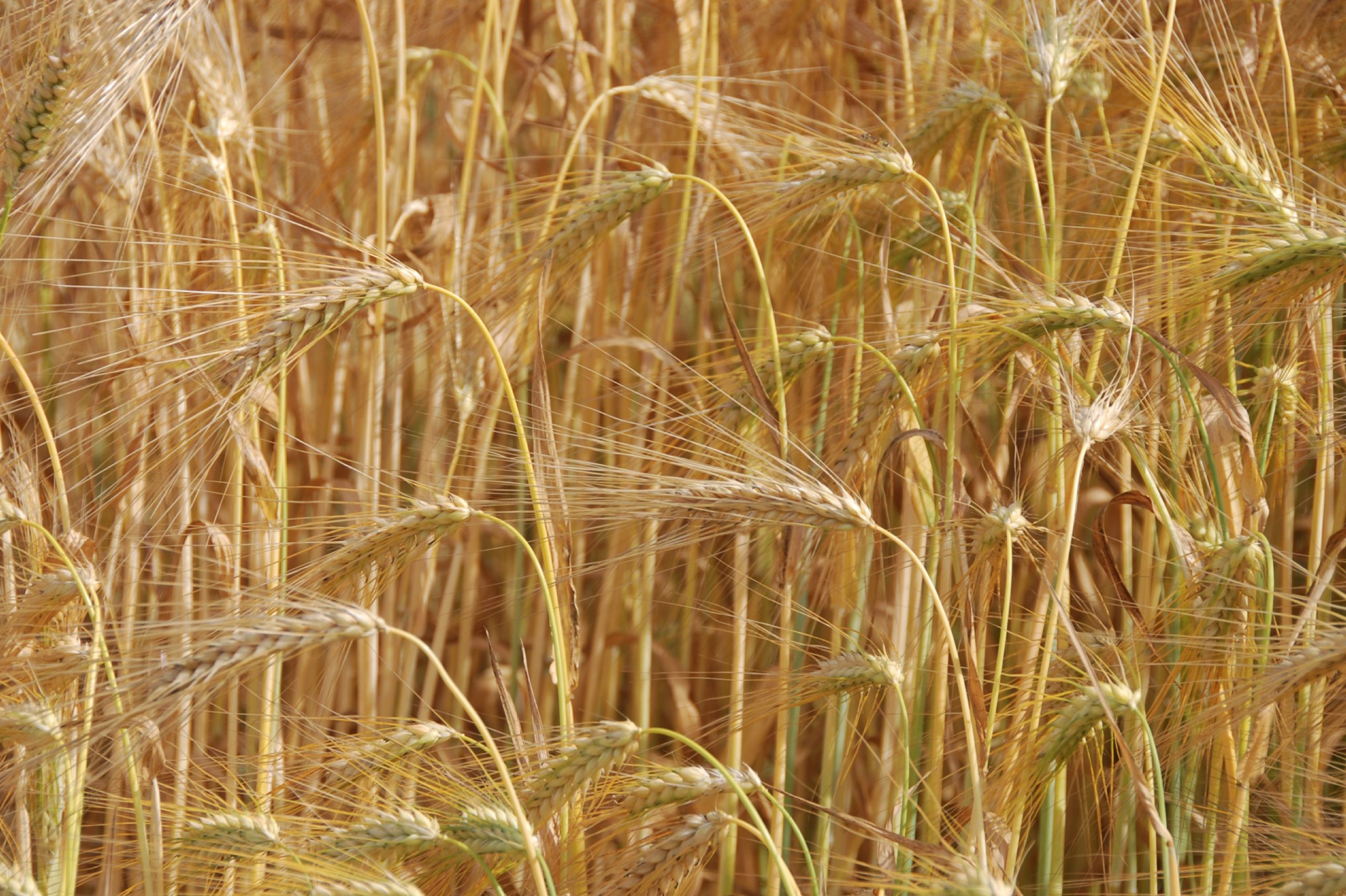 A Norwegian start up is showing how a little black powder could have a big impact on farming — from healthier livestock to stronger soils and a more climate-friendly future. Why it matters: The ongoing emphasis on reducing antibiotic use in livestock production and increasing soil health means farmers are looking for new tools to help them achieve this. Obiochar, based in rural Norway about 120 kilometres north of Oslo, is using a fully automated system to turn biomass – in this case dead trees from nearby forests that can’t be used by the lumber industry – into a powerful tool for agriculture. And while biochar itself isn’t new, Obiochar ‘s unique, dual-focused approach to using biochar is setting it apart from its competitors. The company is developing biochar products both for livestock gut health in the form of feed additives and soil enhancement as an amendment.
A Norwegian start up is showing how a little black powder could have a big impact on farming — from healthier livestock to stronger soils and a more climate-friendly future. Why it matters: The ongoing emphasis on reducing antibiotic use in livestock production and increasing soil health means farmers are looking for new tools to help them achieve this. Obiochar, based in rural Norway about 120 kilometres north of Oslo, is using a fully automated system to turn biomass – in this case dead trees from nearby forests that can’t be used by the lumber industry – into a powerful tool for agriculture. And while biochar itself isn’t new, Obiochar ‘s unique, dual-focused approach to using biochar is setting it apart from its competitors. The company is developing biochar products both for livestock gut health in the form of feed additives and soil enhancement as an amendment.
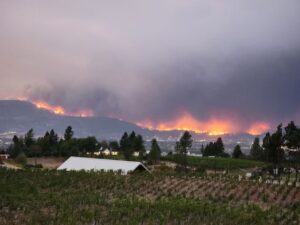 Turkey faced a “very risky week” for wildfires, an official said Monday, as blazes across parts of southeast Europe and the Balkans damaged homes and led to a huge firefighting operation that included evacuations. Nearly 100 people face prosecution over the fires in Turkey. Blazes erupted near Bursa, Turkey’s fourth-largest city, over the weekend. A wildfire to the northeast of Bursa had been largely extinguished, but one to the south of the city continued, although its intensity had been “significantly reduced,” Forestry Minister Ibrahim Yumakli told reporters in Ankara. He also said that a fire that has been burning for six days in Karabuk, in northwest Turkey, had also “been reduced in intensity,” and a blaze in Karamanmaras in the south had largely been brought under control.
Turkey faced a “very risky week” for wildfires, an official said Monday, as blazes across parts of southeast Europe and the Balkans damaged homes and led to a huge firefighting operation that included evacuations. Nearly 100 people face prosecution over the fires in Turkey. Blazes erupted near Bursa, Turkey’s fourth-largest city, over the weekend. A wildfire to the northeast of Bursa had been largely extinguished, but one to the south of the city continued, although its intensity had been “significantly reduced,” Forestry Minister Ibrahim Yumakli told reporters in Ankara. He also said that a fire that has been burning for six days in Karabuk, in northwest Turkey, had also “been reduced in intensity,” and a blaze in Karamanmaras in the south had largely been brought under control. At least 10 forestry and rescue workers have been killed while battling wildfires in Turkey’s central Eskisehir province. Some 24 forest workers and volunteer rescue personnel were left “trapped inside the fire” following a change in the direction of the wind, Turkey’s Agriculture and Forestry Minister Ibrahim Yumakli said in a post on X. Five forestry workers and five volunteers from the AKUT rescue organisation lost their lives and 14 forest workers were taken to hospital, he said. The blaze in the Seyitgazi district of the province began on Tuesday morning and started spreading towards nearby areas, local media said.
At least 10 forestry and rescue workers have been killed while battling wildfires in Turkey’s central Eskisehir province. Some 24 forest workers and volunteer rescue personnel were left “trapped inside the fire” following a change in the direction of the wind, Turkey’s Agriculture and Forestry Minister Ibrahim Yumakli said in a post on X. Five forestry workers and five volunteers from the AKUT rescue organisation lost their lives and 14 forest workers were taken to hospital, he said. The blaze in the Seyitgazi district of the province began on Tuesday morning and started spreading towards nearby areas, local media said.  A firefighting helicopter crashed into the sea while attempting to collect water to combat a blaze in Athens. All three crew members were rescued and taken to a nearby hospital. Greece is combating a surge in wildfires amid soaring temperatures. A large wildfire broke out near the southern Greek city of Corinth on Tuesday, forcing the evacuation of several villages as firefighters battled flames under scorching conditions, authorities said. More than 180 firefighters, supported by 15 aircraft and 12 helicopters, were deployed to tackle the blaze in a pine forest in the mountainous area of the municipality, according to the local fire department. There were no immediate reports of injuries.
A firefighting helicopter crashed into the sea while attempting to collect water to combat a blaze in Athens. All three crew members were rescued and taken to a nearby hospital. Greece is combating a surge in wildfires amid soaring temperatures. A large wildfire broke out near the southern Greek city of Corinth on Tuesday, forcing the evacuation of several villages as firefighters battled flames under scorching conditions, authorities said. More than 180 firefighters, supported by 15 aircraft and 12 helicopters, were deployed to tackle the blaze in a pine forest in the mountainous area of the municipality, according to the local fire department. There were no immediate reports of injuries.